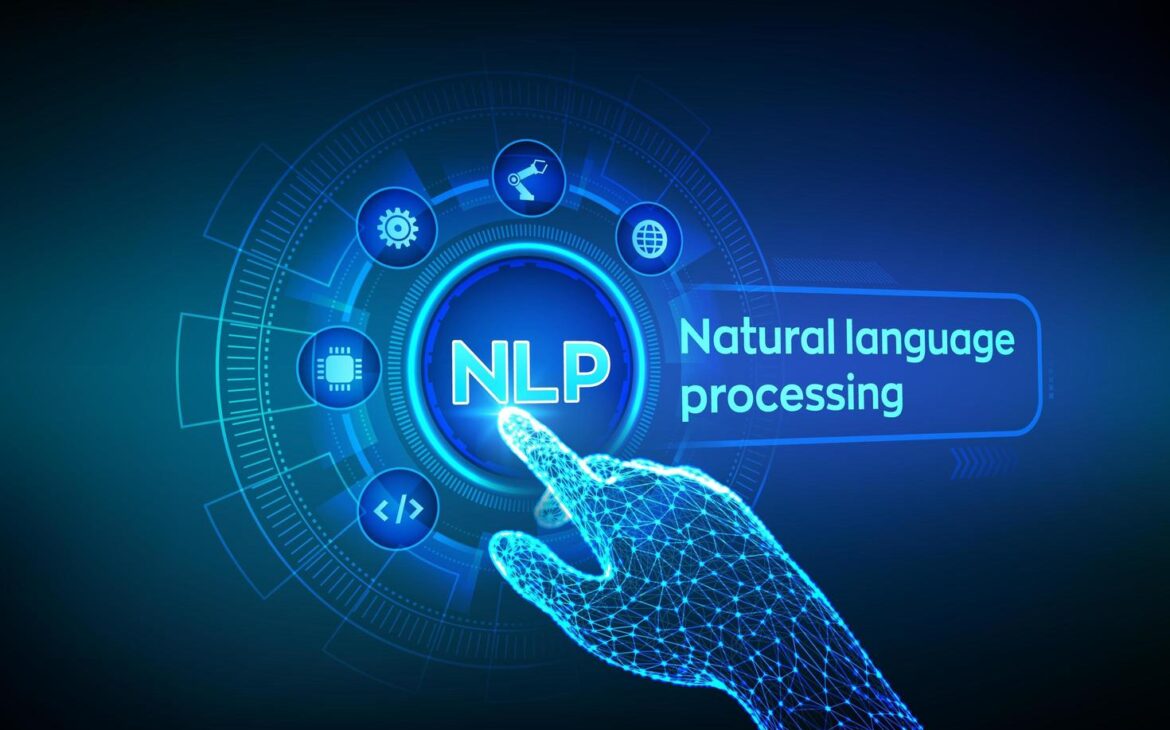Natural Language Processing, or NLP, is one of the most effective subdisciplines of AI that allows machines to process and generate text and speech that make sense. As companies embrace AI systems, NLP is critical in the kind of disruption that it brings to the organization for the better by enhancing customer experience and efficiency and gaining insights. Indeed, owing to people’s expectations for Natural Language Processing (NLP) interfaces and responsive systems, AI is an unreplaceable tool. In this article, we’ll uncover the significance of NLP to the future of AI, how it can be applied, and how Nextr Technology is using NLP to build proficient AI solutions.
What do we mean by Natural Language Processing?
NLP is a study area in computer science, linguistics, and artificial intelligence that aims to enable computers to assess large amounts of data using natural language. This includes text data, speech and other forms of natural language; this makes machines to be able to “understand” and be able to reply to human communication in what can be termed a human-like fashion.
How NLP Works in AI
That is, NLP in AI relies on algorithms to synthesize natural language into a format that is comprehensible to computers. Tokenization involves the breakdown of text into words, and stemming involves the reduction of words into base form, which parsers enable a system to be developed with a view of grasping language.
The availability and efficiency of machine learning, especially deep learning and neural networks, have enhanced the contextual understanding of NLP and the possibility of making the widgets, such as chatbots, virtual assistants or language models, considerably more proactive and precise.

NLP’s Role in AI
Various applications of NLP are numerous, and they apply to almost every field in serving both the business community and consumers. Here are a few examples that showcase the potential of natural language processing in AI:
1. Customer Support Automation: NLP has a central place in virtual assistants and chatbots that are concerned with customer relations. Through analysing customer questions and giving answers immediately, NLP-infused AI gives instant solutions to frequently asked questions to companies, thereby cutting organizational costs while enhancing benefits and satisfaction for customers.
2. Sentiment Analysis: Companies employ NLP to gather information from their customers’ feedback, reviews or mentions on the social media platform to determine their perception. This insight is useful to brands and helps them make decisions concerning products and overall customer service.
3. Machine Translation: In international business matters, language may often pose a barrier, but AI using powerful methods such as NLP can translate any language. Google Translate, for example, has taken this procedure under improvement using natural language processing.
4. Voice Recognition: Natural language processing is used in virtual assistants, including Siri, Alexa, and Google Assistant, to understand voice commands. Voice recognition is among the most effective attributes of AI in organizations since it enables people to speak to devices and makes them more friendly.
5. Content Summarization: NLP can be used to create automatic summaries for big papers, making it easy for the clients to quickly acquire the main details. This is even more helpful in careers such as journalism and research.
6. Data Extraction and Analysis: NLP, as a means of analyzing text data, enables identifying any useful information from textually chaotic sources like emails, social networks, and customer service chat logs. This is useful to businesses because they can glimpse customer trends, favouritism and inefficiency.
In this Blog, we will consider why natural language processing (NLP) is important for artificial intelligence in business.
Actually, natural language processing, as one of the prevalent areas in AI, is improving companies’ performance and changing the very ways businesses operate in various sectors. Here are some of the most significant impacts of NLP in the business world:

1. Improved Customer Experiences: This way, customers can be served appropriately and in a short span of time, as seen with NLP in AI systems. Personalization allows touchpoints to feel more genuine, making customers happier and increasing the chances that they will remain loyal to a brand.
2. Data-Driven Insights: It can identify trends in large bodies of text data to give business organisations the information they need for decision-making. NLP can be applied by companies for evaluating customer sentiment, competitor actions and market developments from social media and enterprise data.
3. Cost Reduction: Since planning requires a significant amount of human intervention, defining tasks that require human intervention can be automated to help reduce expenditure among businesses. Interactive NLP customer service can effectively attend to a large number of customer queries, thereby relieving the human agents of attending to complicated tasks.
4. Better Market Reach and Communication: NLP offers an opportunity in language translation and sentiment analysis, thus helping businesses venture into new markets. AI is capable of analyzing data from overseas clients in their own languages, which assists firms in enhancing their means of communication strategy and its execution.
5. Increased Accessibility: Advanced voice recognition, as well as text-to-speech, facilitates a way through which the disabled can access specific web content and information, thus maintaining inclusiveness and expanding business frontiers.
Natural Language Processing with Python: A Useful Technology for Developers
Python is one of the most popular languages for NLP because it is easy to work with, and there are abundant amounts of available NLP libraries. There are many Python libraries with which developers can build and train their NLP models effectively and efficiently, such as NLTK (Natural Language Toolkit), spaCy TextBlob, and several others. Here’s a look at some of the popular Python libraries used in NLP:
• NLTK (Natural Language Toolkit): On the one hand, NLTK is a powerful library that allows users to access more than 50 corpora and lexical resources via simple interfaces. On the other hand, it involves WordNet. Other constituents of this language are libraries for tokenization, tagging, parsing, and semantic reasoning. Thus, it is really great for beginners and researchers.

• spacy: Described for its efficiency and the ability to process masses of texts, spacy is well-liked among developers constructing sizable NLP programs. It supports, inter alia, word embeddings, named entity recognition, and part of speech tagging, which makes TQ-Kimera most suitable for real-time applications.
• Text Blob: Text Blob is quite easy to use and is friendly towards beginners in NLP. Some of its features include sentiment analysis and text classification. Nltk was developed for this, and it provides a friendly interface for the manipulation of NLP in Python.
• Transformers by Hugging Face: This library has revolutionized NLP with its pre-trained models of BERT and GPT. It allows developers to further fine-tune state-of-the-art NLP models for several tasks.
These libraries bring NLP and Python to the basic level while offering massive functionality. If you are developing chatbots, working with text data, or implementing translation in Python, you will find options for different levels of developers.
The Future of NLP in AI and Business
As AI technology grows, the NLP will augment, leading to better understanding and responses. Since NLP can open possibilities to generate more insights and automate some work while improving overall communication, it is safe to predict that this technology will continue to be a crucial business tool. Other generative models, including GPT-4 and others, suggest that the future of NLP is brightly coloured and will make NLP even more natural.
Partner with Nextr Technology for NLP-Driven AI Solutions
Nextr Technology specializes in one segment of the artificial intelligence industry based on natural language processing. Through NLP and artificial intelligence solutions that Client IO has to offer, businesses can derive increased value and translate it into customer convenience, efficient functioning, and growth mechanisms. From deploying NLP to chatbots, sentiment analysis or voice recognition, Nextr Technology is well-positioned to provide custom solutions to help your business. Contact Nextr Technology today and find out what we can do for you: let Northwestern NLP solutions improve your company.
Thank you for reading 🙂
Buy Web Hosting at an affordable price: Buy Now
Get up to 70% Discount on Amazon (Buy Now)
Buy Web Hosting at an affordable price: Buy Now
If you want to build your website at an affordable price, contact www.nextr.in
Read this: How To Become A Web Developer?


















